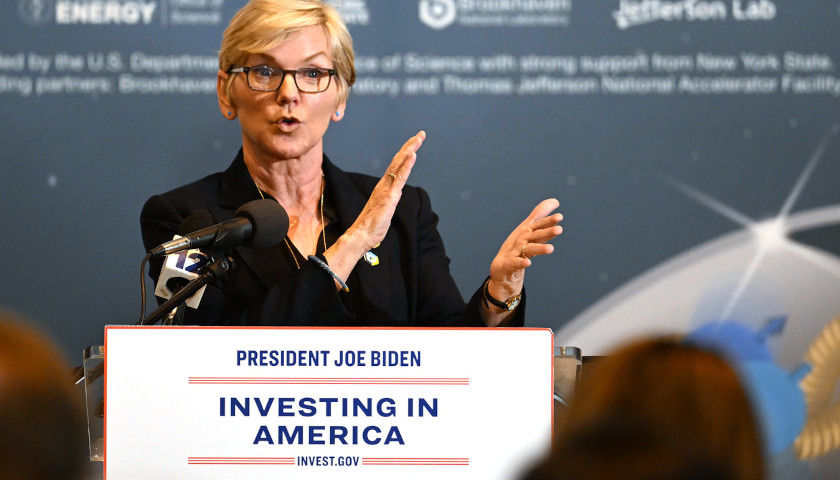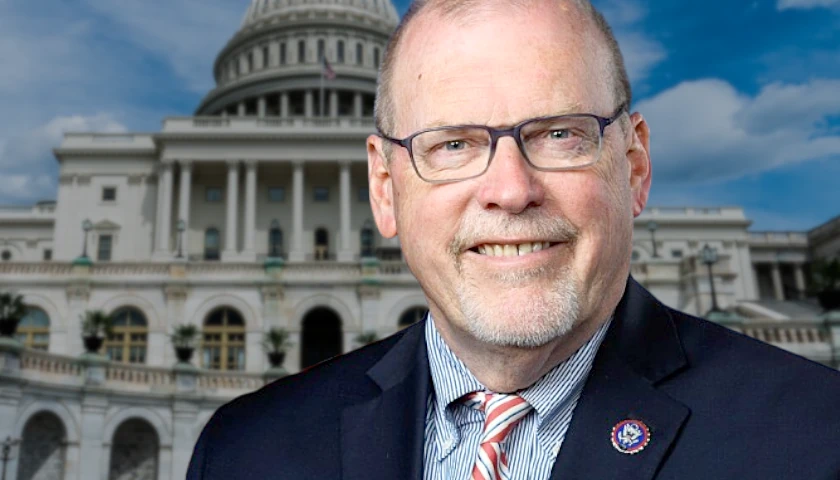by Bethany Blankley
Not soon after the general election, and within two weeks of each other, two major financial institutions have left a United Nations Net Zero Banking Alliance (NZBA).
This is after they joined three years ago, pledging to require environmental social governance standards (ESG) across their platforms, products and systems.
According to the “bank-led and UN-convened” NZBA, global banks joined the alliance, pledging to align their lending, investment, and capital markets activities with a net-zero greenhouse gas emissions by 2050, NZBA explains.
Since April 2021, 145 banks in 44 countries with more than $73 trillion in assets have joined NZBA, tripling membership in three years.
“In April 2021 when NZBA launched, no bank had set a science-based sectoral 2030 target for its financed emissions using 1.5°C scenarios,” it says. “Today, over half of NZBA banks have set such targets.”
There are two less on the list.
Goldman Sachs was the first to withdraw from the alliance this month, ESG Today reported. Wells Fargo was the second, announcing its departure Friday.
The banks withdrew two years after 19 state attorneys general launched an investigation into them and four other institutions, Bank of America, Citigroup, JP Morgan Chase and Morgan Stanley, for alleged deceptive trade practices connected to ESG.
Four states led the investigation: Arizona, Kentucky, Missouri and Texas. Others involved include Arkansas, Indiana, Kansas, Louisiana, Mississippi, Montana, Nebraska, Oklahoma, Tennessee and Virginia. Five state investigations aren’t public for confidentiality reasons.
The investigation was the third launched by Texas AG Ken Paxton into deceptive trade practices connected to ESG, which he argues were designed to negatively impact the Texas oil and natural gas industry. The industry is the lifeblood of the Texas economy and major economic engine for the country and world, The Center Square has reported.
The Texas oil and natural gas industry accounts for nearly one-third of Texas’s GDP and funds more than 10% of the state’s budget.
It generates over 43% of the electricity in the U.S. and 51% in Texas, according to 2023 data from the Energy Information Administration.
It continues to break production records, emissions reduction records and job creation records, leading the nation in all three categories, The Center Square reported. Last year, the industry paid the largest amount in tax revenue in state history of more than $26.3 billion. This translated to $72 million a day to fund public schools, universities, roads, first responders and other services.
“The radical climate change movement has been waging an all-out war against American energy for years, and the last thing Americans need right now are corporate activists helping the left bankrupt our fossil fuel industry,” Paxton said in 2022 when launching Texas’ investigation. “If the largest banks in the world think they can get away with lying to consumers or taking any other illegal action designed to target a vital American industry like energy, they’re dead wrong. This investigation is just getting started, and we won’t stop until we get to the truth.”‘
Paxton praised Wells Fargo’s move to withdraw from “an anti-energy activist organization that requires its members to prioritize a radical climate agenda over consumer and investor interests.”
Under Texas law, financial institutions that boycott the oil and natural gas industry are prohibited from entering into contracts with state governmental entities. State law also requires state entities to divest from financial companies that boycott the oil and natural gas industry by implementing ESG policies. To date, 17 companies and 353 publicly traded investment funds are on Texas’ ESG divestment list.
After financial institutions withdraw from the NZBA, they are permitted to do business with Texas, Paxton said. He also urged other financial institutions to follow suit and “end ESG policies that are hostile to our critical oil and gas industries.”
Texas Comptroller Glenn Hegar has expressed skepticism about companies claiming to withdraw from ESG commitments noting there is often doublespeak in their announcements, The Center Square reported.
Notably, when leaving the alliance, a Goldman Sachs spokesperson said the company was still committed to the NZBA goals and has “the capabilities to achieve our goals and to support the sustainability objectives of our clients,” EST Today reported. The company also said it was “very focused on the increasingly elevated sustainability standards and reporting requirements imposed by regulators around the world.”
“Goldman Sachs also confirmed that its goal to align its financing activities with net zero by 2050, and its interim sector-specific targets remained in place,” EST Today reported.
Five Goldman Sachs funds are listed in Texas’ ESG divestment list.
The Comptroller’s office remains committed to “enforcing the laws of our state as passed by the Texas Legislature,” Hegar said. “Texas tax dollars should not be invested in a manner that undermines our state’s economy or threatens key Texas industries and jobs.”
– – –
Bethany Blankley is a contributor to The Center Square.








